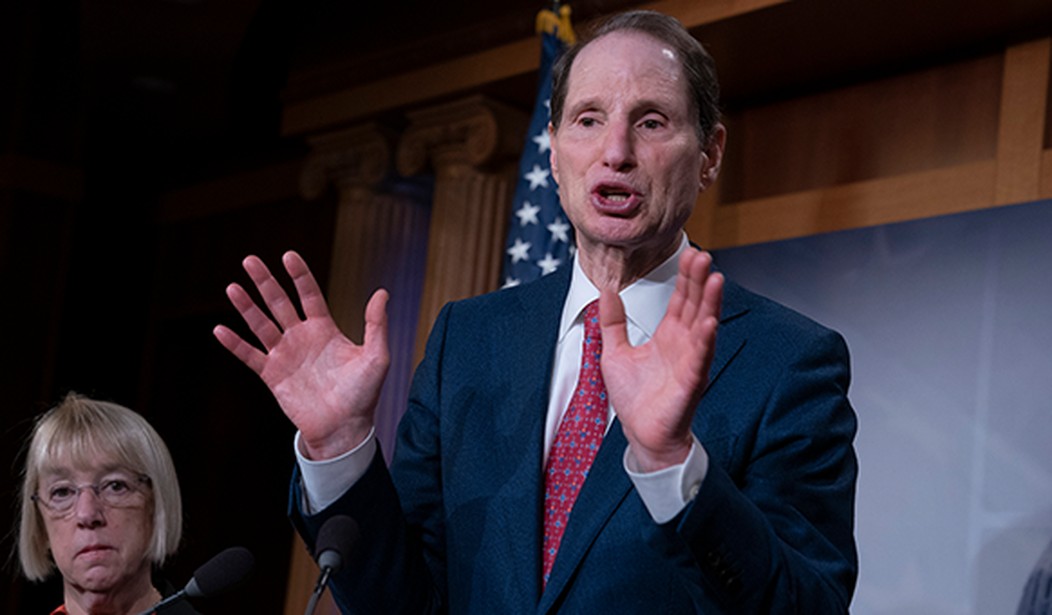“This proposal is essentially reverse Robin Hood… Billions of dollars coming out of the pockets of working people and working families and it is transferred to the most fortunate in our country.”
Although those words from career politician Ron Wyden were intended to deride a Republican policy he opposed back in March of 2017, they instead perfectly describe a proposal he himself put forth in March of 2020. Senator Wyden recently sponsored an amendment to save taxpayer-funded subsidies for luxury electric vehicles [EVs] often enjoyed by ultra-rich multimillionaires like himself.
For more than a decade, the working people and working families that Senator Wyden claims to fight for in Washington have collectively been forced to help contribute up to $7,500 for every EV sold in America – that is, until each manufacturer sells 200,000 units. As one of Wyden’s Senate colleagues, Wyoming’s John Barrasso, notes, between 2011 and 2017, EV buyers therefore received a total of $4.7 billion in tax credits. The bipartisan Joint Committee on Taxation, meanwhile, estimates that the credit will cost taxpayers $7.5 billion between FY2018 and FY2022 alone in its current form.
Given the tremendous amount of taxpayer assistance the industry has already received, its response to the foregoing phase-out period should be rooted in gratitude rather than greed. But these billions are apparently insufficient for colossal electric car corporations hoping to sustain their taxpayer-funded windfall from Washington for as long as professional politicians like Ron Wyden will permit. Accordingly, in an act of total contempt for his middle-class constituents, Senator Wyden is working to deliver an additional $16 billion to these carmakers’ coffers over the course of the next decade – a product of the industry’s relentless lobbying push to lift the aforementioned limit up to 600,000 units as more and more EV manufacturers prepare to join giants like General Motors and Tesla in outselling their caps.
Recommended
While a $7,500-per-vehicle tax credit may sound like pocket change to the sixteenth richest lawmaker in the United States Senate – back in 2016, Wyden had an estimated net worth of nearly $10 million – it is a significant sum to the working people who must subsidize the purchases of his prominent pals in the top 1 percent. Yet, this precise group of people is priced out of very luxury cars they help finance as “the median price for electric vehicles is roughly $20,000 more than the median price of gas-powered cars.” Per a recent report released by the nonpartisan Congressional Research Service – which is widely considered to be Congress’s think tank – “EV tax credits are disproportionately claimed by higher-income taxpayers.” More specifically, “most of the tax credits (78%) are claimed by filers with adjusted gross income (AGI) of $100,000 or more, and those filers receive an even higher proportion (83%) of the amount of credits claimed.”
Additional data about the income demographics of those who most frequently claim the credit make clear that EVs are taxpayer-funded toys for wealthy people like Wyden:
- A 2018 Pacific Research Institute study found that “79 percent of electric vehicle plug-in tax credits were claimed by households with adjusted gross incomes of greater than $100,000 per year”;
- The 2017 U.S. Department of Transportation’s National Household Travel Survey revealed that “about two-thirds of households with [battery electric or plug-in hybrid electric vehicles] have incomes higher than $100,000”;
- In a 2017 CarMax/CleanTechnica survey, 17 percent of households with EVs – the largest share of any income bracket – earned $200,000 or more the previous year; and
- Energy economists at the University of California, Berkeley concluded that “the top income quintile has received about 90% of all [Qualified Plug-in Electric Drive Motor Vehicle Credits].”
Setting aside the EV subsidy program’s disturbing proneness to fraud and abuse – late last year, a government watchdog concluded that “bogus electric vehicle tax credits” cost taxpayers tens of millions of dollars – it can clearly be called a failed subsidy program because of the disparity between those who are fortunate enough to claim the credit and those who are compelled to contribute to it. As Senator Wyden so aptly put it, “this proposal is essentially reverse Robin Hood” because it redistributes precious resources from working people to the wealthy; from his middle-class constituents to massive EV corporations.
Eliminating, rather than extending or enlarging, the EV tax credit is clearly the proper course as Congress considers its path forward. Let’s pull the plug on this welfare program for the most affluent among us.

























Join the conversation as a VIP Member